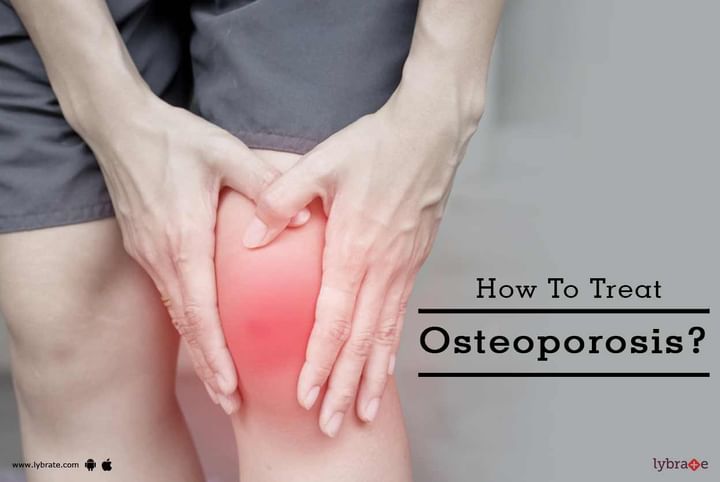How To Treat Osteoporosis?
Osteoporosis is a condition which usually results due to a decrease in bone density. In this condition, the bones become weak and brittle. Fractures are a common result of osteoporosis. Usually, symptoms or signs do not show up until the condition progresses to its advanced stages.
Since osteoporosis is usually irreversible and incurable, preventing the fractures is considered to be extremely important.
Who is at risk of osteoporosis?
All men and women have some risk of developing 'thinning' of the bones (osteoporosis) as they become older, particularly over the age of 60. As mentioned above, women are more at risk than men. The following situations may also lead to excessive bone loss and so increase your risk of developing osteoporosis. If you:
- Are a woman who had the menopause before 45 years of age
- Have already had a bone fracture after a minor fall or bump
- Have a strong family history of osteoporosis.
- Have a body mass index (BMI) of 19 or less (that is, you are very underweight)
- Have irregular periods
- Have taken, or are taking, a steroid medicine (such as prednisolone) for three months or more
- Are a smoker
- Have an alcohol intake of more than four units per day
- Lack calcium and/or vitamin D (due to a poor diet and/or little exposure to sunlight).
- Are mostly inactive
Ways To Treat Osteporosis
Osteoporosis in women can be treated using Hormone Replacement Therapy (HRT). The therapy makes use of either a combination of progestin and oestrogen or simply, oestrogen. However, it is possible that certain combinations have side-effects that might give rise to other medical conditions. Therefore, proper consultation with an orthopedist is an essential pre-requisite so that the condition of osteoporosis as well the side effects may be addressed before proceeding with Hormone Replacement Therapy.
There are a number of medications that can be used which have long-term effects on osteoporosis. However, the schedule for intake of these medicines should be followed diligently. Failing to adhere to the schedule could lead to serious complications. For example, the intake of Risedronate medications (prevent bone loss) should be scheduled once every month, failing which can cause ulcers in the food pipe. Raloxifene has effects which are similar to oestrogen but does not exhibit any serious side effects. Teriparatide can be used to treat osteoporosis in people who have a high risk of suffering from bone fractures.
Don't rely entirely on medication as the only treatment for your osteoporosis. These practices also are important:
- Exercise. Weight-bearing physical activity and exercises that improve balance and posture can strengthen bones and reduce the chance of a fracture. The more active and fit you are as you age, the less likely you are to fall and break a bone.
- Good nutrition. Eat a healthy diet and make certain that you're getting enough calcium and vitamin D. Being underweight or losing a lot of weight unintentionally is associated with poorer bone health and a higher risk of fracture — even if you're taking a bisphosphonate.
- Quit smoking. Smoking cigarettes speed up bone loss.
- Limit alcohol. If you choose to drink alcohol, do so in moderation. For healthy adults, that means up to one drink a day for women of all ages and men older than age 65, and up to two drinks a day for men age 65 and younger.



+1.svg)
